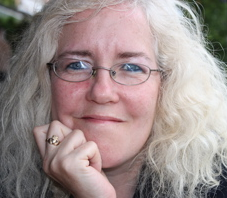
Abstract
Teaching online challenges us to think differently about some fundamental issues for both schooling and higher education: changing ideas about the importance of place and space, new modes for assessment and academic writing, and new models of what it means to teach. In this talk I will discuss some of these, and explore ways in which research in the field can offer critical and theoretical frameworks for engaging with them. Using the ‘manifesto for teaching online’ [http://www.de.ed.ac.uk/project/manifesto-teaching-online] developed at the University of Edinburgh as a starting point, I will discuss two particular issues currently facing teachers and researchers in digital education: teacher automation and the re-thinking of physical space.

Research into the use of technologies for learning can be traced back to the sixties or even earlier. In the eighties authoring tools and e-assessment tools enabled teachers to create multimedia resources for their students and provide them with formative feedback on their learning. The Web emerged in the early nineties and there is no doubt that its impact on education has been transformative. UNESCO argues that education is a fundamental human right and hence we have seen the emergence of Open Education Resources (OER) and Massive Open Online Courses (MOOCs), which are challenging traditional educational offerings. Mobile devices mean that learning anywhere anytime is now a reality and social media mean that teachers and learners can be part of a global community of peers. Therefore digital technologies offer a plethora of ways in which learners can interact with rich multimedia and ways of communicating and collaborating. As such now is a good point to critically reflect on the use of technology in education, identify some of the defining technologies and how they are being used and think of some of the big challenges associated with the field. Despite the potential technologies offer for education they are not being used extensively, teachers and learners lack the necessary digital literacies to make effective use of technologies and teachers need support to rethink their design practice to make appropriate use of technologies. The talk will centre around the following questions:
· • What do we know from the research literature?
· • What research is currently being conducted?
· • Who else is conducting research in my area and how does it relate to my own work?
· • Where are the gaps and methodological weaknesses in the current research literature?
· • What are likely to be the future questions, challenges and possibilities in digital learning research?
The talk will conclude by tentatively projecting what are likely to be some of the key developments in the field over the coming years and suggesting some potential areas for research.

From books to blogs, manuscripts to metrics, ‘closed’ to green/gold access and from ivory towers to engaged scholarship – all remind us of striking changes in the dynamics of academic publishing in the last two decades – at least at first glance. In the context of the fast changing digital era, this presentation provides some reflections on the ways in which academic publishing has changed, or not, vis-à-vis authorial practices, dissemination ‘publics’ and the political economy of publishing. To what extent, if at all, has academic writing and publishing changed in the digital era? In what ways has the ‘consumption’ of the academy’s ‘goods’ shaped the dissemination of academics’ writing within and outside academia? How have the major publishing houses shaped the contemporary dissemination arena? What are the challenges for emerging and experienced academics in this new era of digital dissemination?

